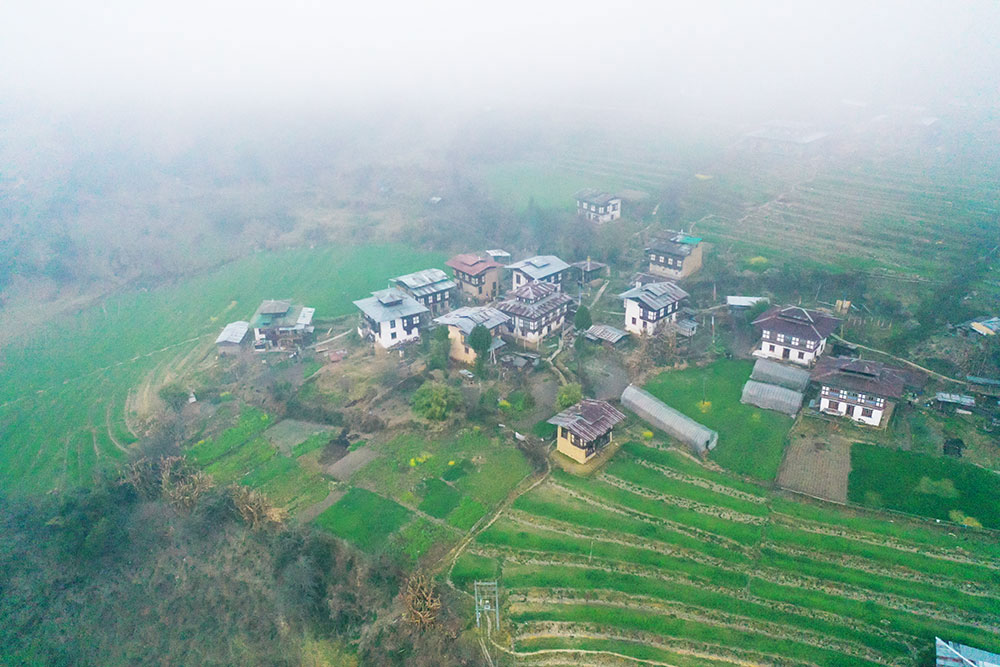Yangyel Lhaden
The people of Nubi Gewog in Trongsa are concerned as tiger attacks on livestock have increased in frequency this month, with 17 cases of tiger attacks from June 1 to June 19 alone.
The farmers are more concerned than ever about the threat to their lives as tigers come closer to their villages.
Nubi is one of the areas with the highest recorded cases of human-wildlife conflicts.
In recent years, the country has witnessed a surge in such conflicts, particularly in Trongsa, where 580 cases were reported between 2020 and 2024; Nubi Gewog alone experienced 360 cases.
With conservation efforts, Bhutan’s tiger population has increased from 103 in 2015 to 131 in 2023.
Last month, five tiger attacks on livestock were recorded in Nubi. From the total cases from May until June 19, Jongthang village recorded 17 tiger attacks on cattle. Mangdiphu recorded five cases.
Nubi Gup, Pema Lhamo, said that there used to be one to two attacks on livestock every month throughout the year, but this month was concerning with tiger attack cases happening every other day.
“Villagers are more concerned about their safety as tiger attacks have increased in frequency. Tigers are now attacking livestock kept near their homes, and the fear is greater than ever now, despite tiger attacks being normal in Nubi,” she said.
The villagers have begun corralling their cattle for safety.
Sonam Tobgay’s family, in Jongthang, has already lost six cattle to tigers this month. “I am more concerned about the safety of human lives.”
To support people living in tiger landscapes, the two villages in Trongsa, Semji and Jongthang, have received electric fencing on their pastureland from UNEP’s Vanishing Treasures Programme to protect cattle from tiger attacks. Additionally, all five gewogs benefit from the Gewog Tiger Conservation Tshogpa, which provides consolation money when livestock are killed by tigers.
Sonam Tobgay said that the grass was growing in the enclosed pastureland, which was the reason why they were not keeping the cows there. “There are fewer attacks when we keep cattle in the pastureland, but as soon as we take them out, tigers kill cattle every night.”
The villagers plan to keep their cattle in the enclosed pastureland next month.
He said that if the tiger roamed free and continues to cause damage, they should be captured and kept in the zoo. “We live near protected areas and we face human-wildlife conflict from various animals and not just tigers.”
The majority of people who have lost cattle to tiger attacks between May and June are not members of the Gewog Tiger Tshogpa.
Some 5,000 residents of 25 villages in Nubi heavily depend on farming and livestock.


